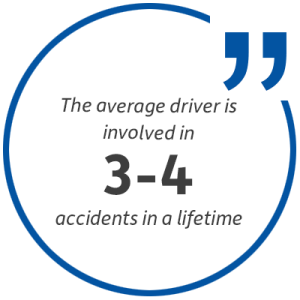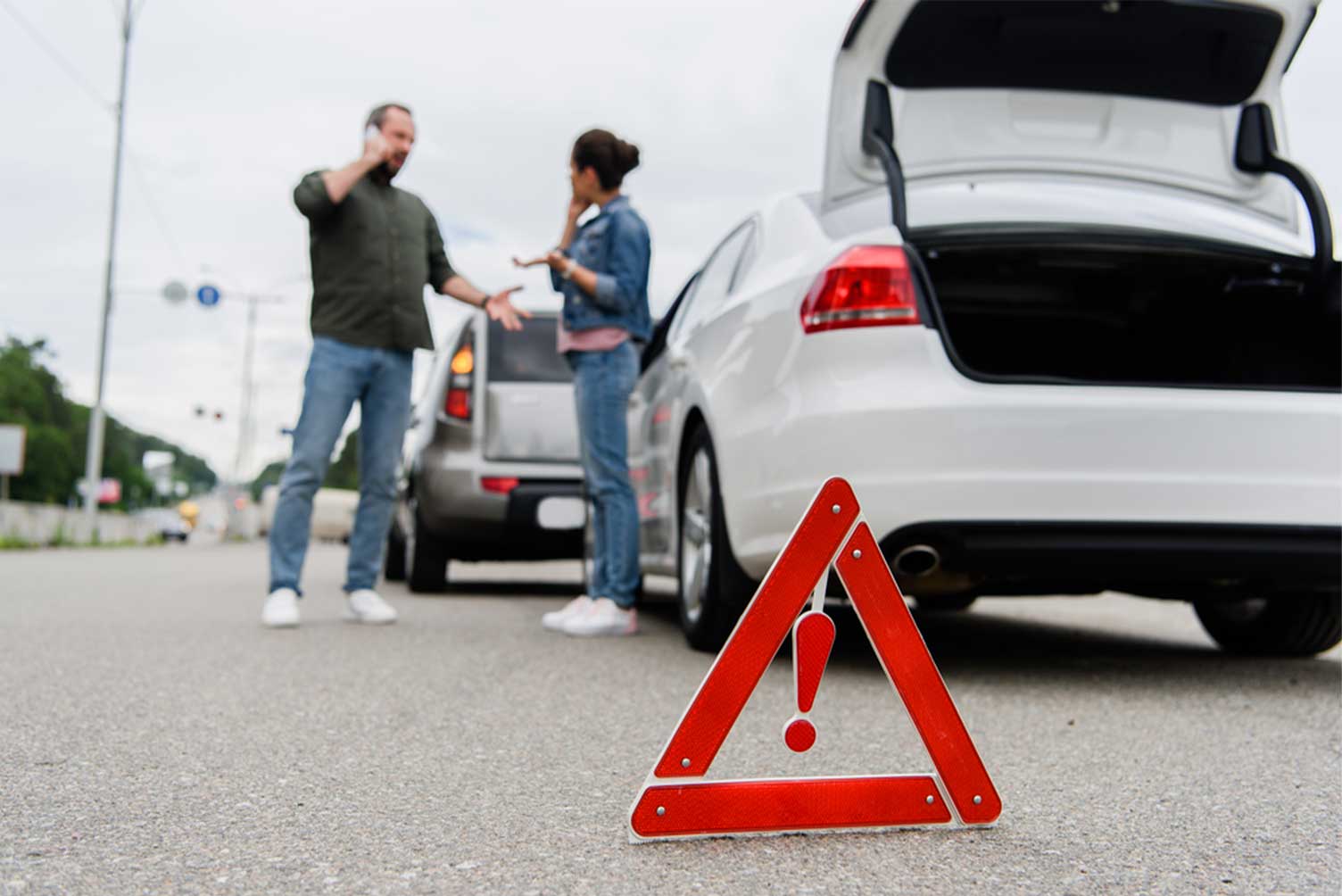
Being in an accident is a shocking experience. Although there are over 5 million accidents each year and the average driver is involved in 3-4 accidents in a lifetime, nobody expects to be sideswiped, rear-ended, T-boned, or hit head-on. When another vehicle plows into you, it’s easy to make mistakes and do or say the wrong thing while your nervous system struggles to make sense of what is happening.
There are many advice articles explaining what to do following a car accident (you may even have a list from your insurance company somewhere in your glove compartment), but here is a list of what not to do after a car accident:
Don’t Leave the Scene:
Even if the damage to your car seems minor, you are obligated to make sure that everyone in the other vehicle is okay. You and the other driver will need to exchange details such as names, contact information, insurance information, etc.
Don’t Neglect to Phone the Police:
You need to report the accident if there are any injuries or if there is significant damage to the vehicles or any other objects (such as guard rails, fences, signs, or street lamps). You must phone 911 if there has been a fatality or if anyone is trapped.
What constitutes significant damage to a vehicle? Anything that would cost more than $1,000 to fix. This is where many people make a mistake; they underestimate how expensive car repairs are or don’t realize that a car may have underlying damage that isn’t immediately visible. Don’t take the chance of miscalculating the amount of damage: phone the police.
Do Not Admit Fault:
Not only should you not admit fault to the other driver or the police officer (or anyone else), but you also should not say anything that could be twisted and used to suggest that you were admitting fault. For example, it is human nature to say sorry when something unfortunate happens or when you feel bad for someone else and what they are going through, but this is not the time for that. Stick to facts rather than feelings when you speak to the officer who will write the police report.
Do Not Say That You are Fine:
You may not feel that you need an ambulance, but you cannot possibly know during your post-accident adrenaline surge that you are completely fine. You can say that you will go to your own doctor to be checked out – and then do that. Many injuries, such as concussions, internal bleeding, or back or neck issues are not evident until hours (or even days or weeks) after the accident. It is also possible to develop PTSD as a result of a traumatic crash; you couldn’t possibly know this at the scene of the accident.
Don’t Neglect to Gather Evidence:
If you have been injured, this may not be possible. However, if you can do so safely, take photos of the accident, the damage done to both vehicles, any tire marks on the road, the angle of the sun, and any traffic lights or signs that are significant. It is also useful to gather contact information from any potential witnesses.
Don’t Speak to a Representative of the Other Party’s Insurance Company:
You are not required to do this, so it is best to let your insurance deal with the other driver’s insurance – or to leave everything up to your lawyer.
Don’t Say More Than you Need to When you Speak to your Own Insurance Company:
It can be confusing to determine what to say when someone gets in a car accident. The best rule of thumb when communicating with insurance representatives is that less is more.
- It is better to answer the questions that you are asked with facts about what happened than to elaborate and offer information about your feelings or theories of what may have happened. Do not provide a written or recorded statement for insurance before consulting an attorney. This is something else that you are not obligated to do. Even when you tell the absolute truth, it is possible for any slight inconsistency to be used against you.
- Even your own insurance company is not exactly on your side. They may have kind representatives who sympathize with you, but at the end of the day, the company is in business to make a profit. This means that it hopes to pay out as little as possible. An experienced car accident attorney will be able to guide you through the negotiation process and will deal with your insurance company for you.
Don’t Ignore Medical Advice:
If you have any injuries, you must follow your doctor’s advice meticulously. Keep all appointments, complete any physical therapy, and take all medications as prescribed.
Don’t Post About the Accident on Social Media:
Insurance companies will often comb through Instagram or Facebook posts to find any evidence that you have lied about or exaggerated your injuries. It is best not to post anything at all on social media since even a smile you held for one second could be used as “evidence” to show that you are not in pain (even if you are). Don’t feel pressured to settle quickly:
In the early days after an accident, it may be tempting to accept an offer from the insurance company simply to wrap up the entire incident. However, you may have PTSD or injuries to your neck or spine that aren’t obvious yet. Listen to your lawyer’s (and doctor’s) advice.
Car accidents are inherently traumatic and stressful for those involved. The stress increases if you are injured and have to deal with paperwork and insurance companies. Don’t let your well-being get lost in the follow up tasks after an accident. The experienced personal injury attorneys at Crossen Law Firm can help you navigate the complex and confusing process of filing injury claims and effectively negotiating with insurance companies so that you can focus on recovery and obtain the compensation you deserve.
Call us at 317-401-8626 for a free consultation. Or contact us online.

 317-401-8626
317-401-8626 
.jpg)